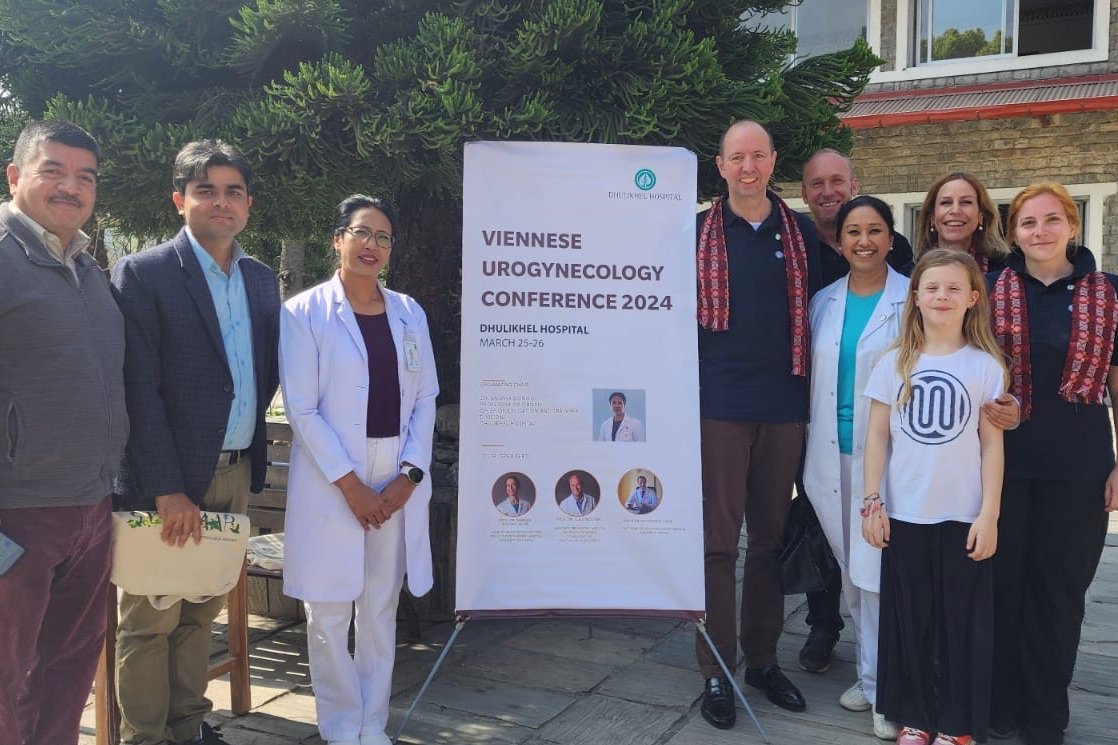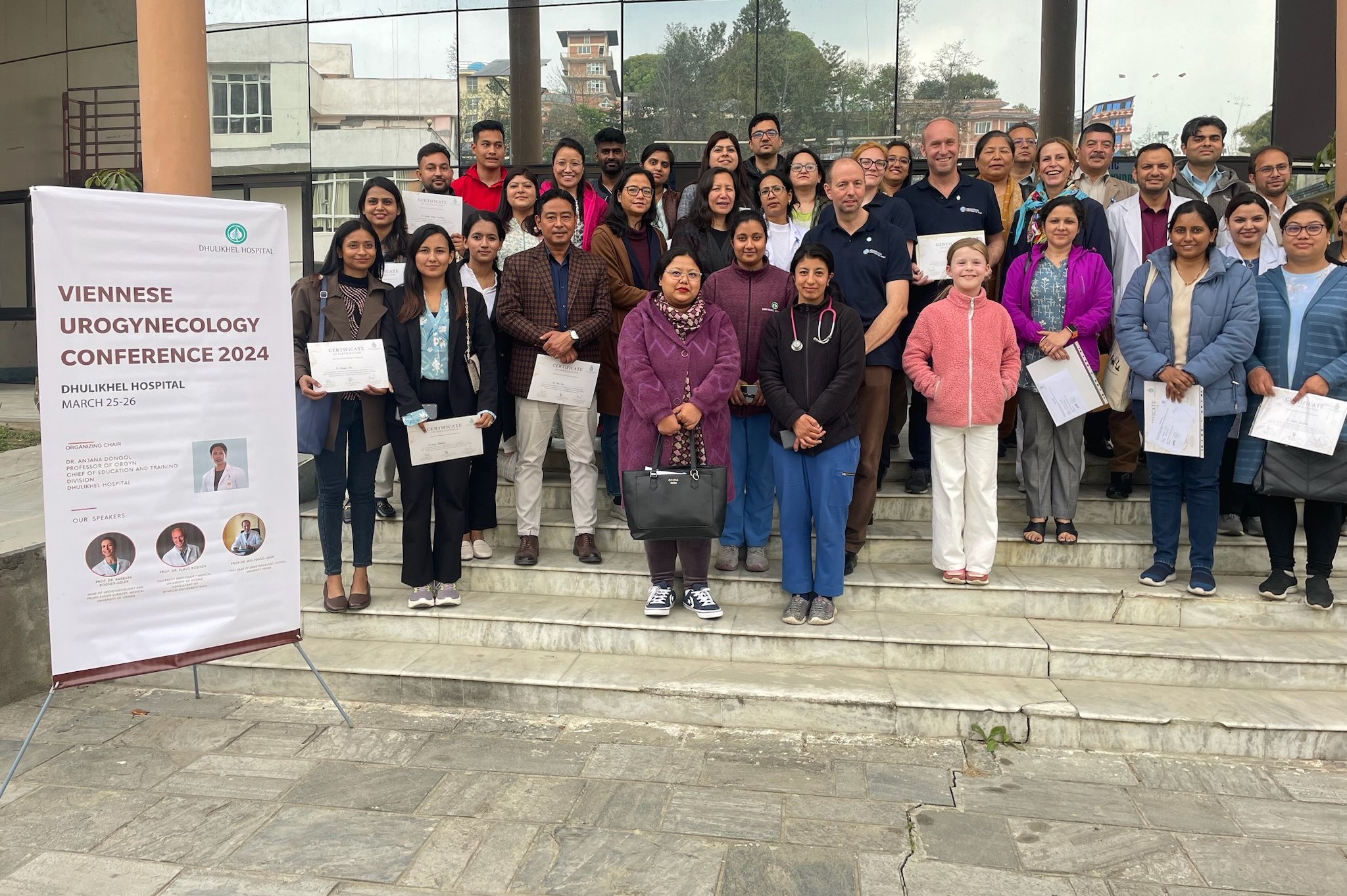
(Vienna, 12 April 2024) At the invitation of Dhulikhel Hospital, a urogynecology team from MedUni Vienna's Department of Obstetrics and Gynecology held a two-day symposium in Nepal. In addition to a series of lectures, the guests from Austria demonstrated a special surgical method for uterine preservation on site.
Uterine prolapse is a particularly common condition in Nepal. In terms of numbers, it is certainly the most common gynecological problem in Nepal, with an estimated one million cases in the country. Many of the women affected are young, and the majority (over 40%) of those affected are of reproductive age. This represents a major social, medical and health policy problem.
Malnutrition, nicotine abuse with COPD, but above all heavy physical labor in the postpartum period and during pregnancy are considered risk factors for this clinical picture. In patriarchal Nepalese society, heavy physical labor, whether in the household or in the rice fields, is primarily performed by women. This makes it difficult for Nepalese women to take a period of rest in terms of maternity protection. The lack of trained midwives and obstetricians also complicates the problem.
Uterus-preserving surgical method demonstrated on site
At the invitation of Dhulikhel Hospital and its medical directors Ram Shresta, a team of Urogynecologists at MedUni Vienna's Department of Obstetrics and Gynecology (Barbara Bodner-Adler, Klaus Bodner, Greta Carlin and Wolfgang Umek) took part in a two-day symposium to give presentations and demonstrate a special uterus-preserving surgical method on site. Organ preservation in the case of prolapse is an immense advantage in countries such as Nepal, as many of the women affected are still very young and removal of the uterus often means additional problems and stigmatization for women.

"We have been performing this special surgical method (vaginal sacrospinous fixation) on our prolapse patients with great success for almost ten years," says the team of experts from MedUni Vienna's Department of Obstetrics and Gynecology, "being able to pass on our experience and knowledge in this area to our Nepalese colleagues was a rewarding and enriching experience for all of us." The team from Austria was also able to develop a special model on which the course participants could be trained individually in this surgical method.
In addition to the urgently needed prevention methods, this organ-preserving pelvic floor surgery offers a gentle and promising treatment alternative for women of reproductive age. It is planned to maintain and expand the personnel and scientific exchange with Dhulikhel Hospital for the mutual benefit of both sides.